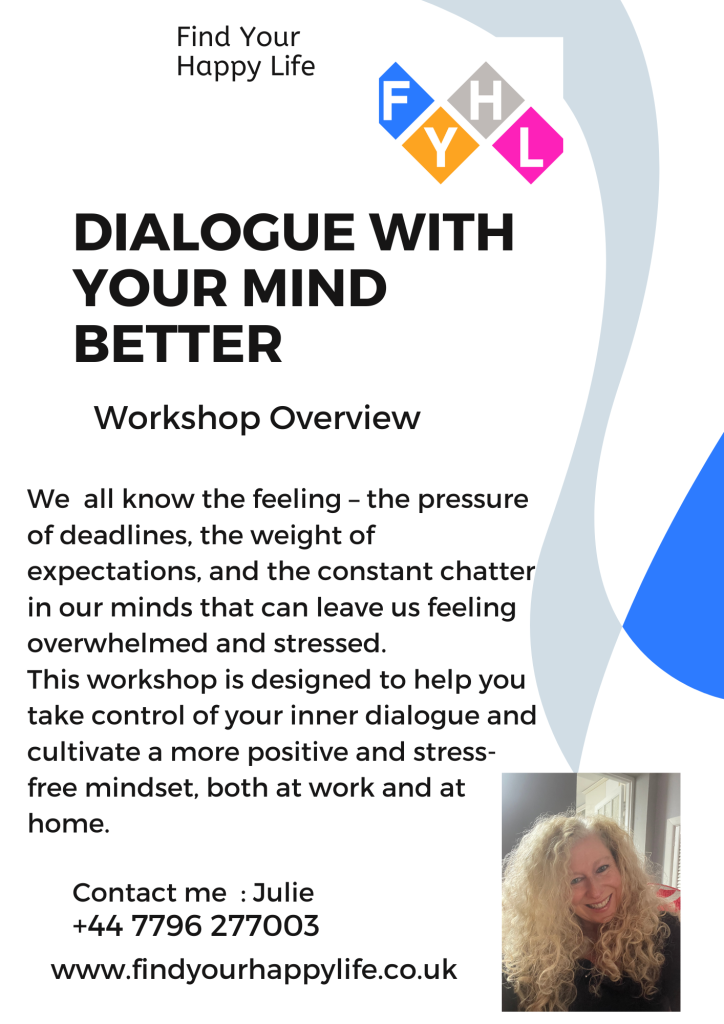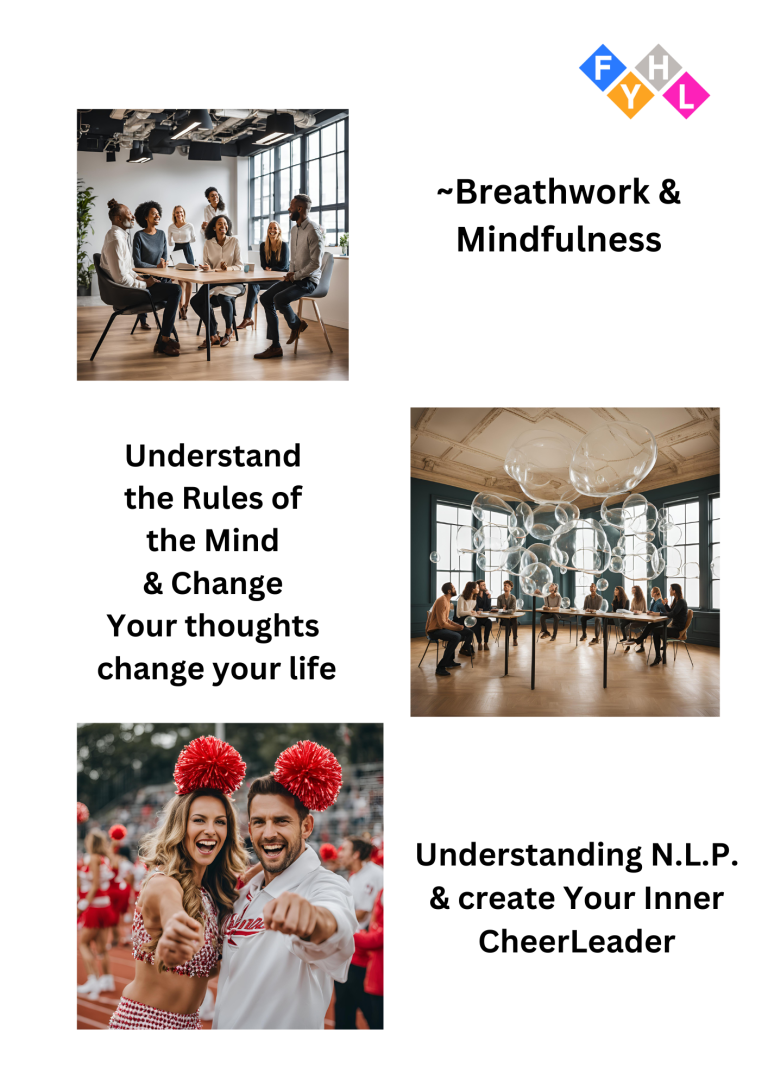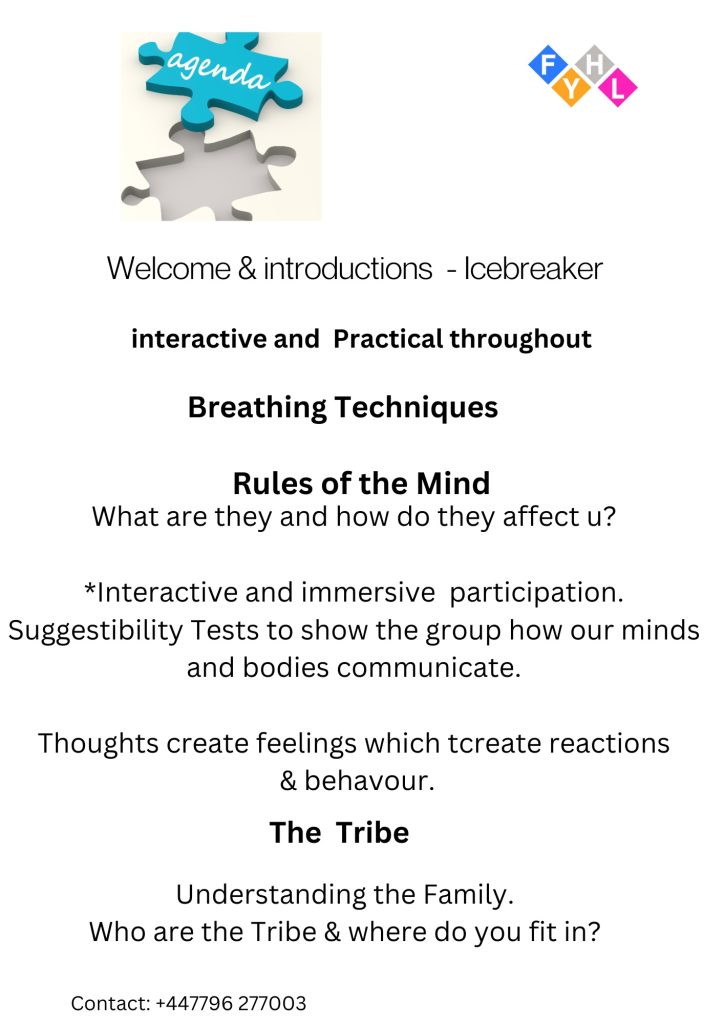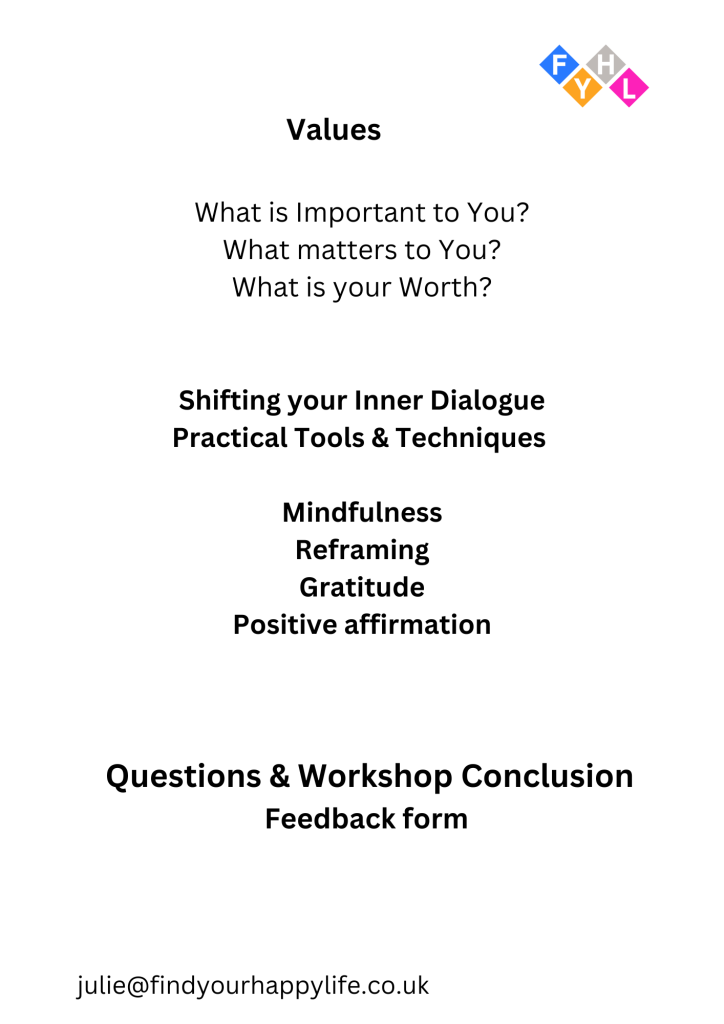Dialogue with Your Mind Better Workshop
Ready to transform your inner critic into a supportive coach?
Join Julie from Find Your Happy Life for the Dialogue with Your Mind Better Workshop and learn powerful techniques to
- Challenge negative self-talk: Learn to reframe limiting beliefs and cultivate a more positive mindset.
- Develop effective communication skills: Master the art of talking to yourself in a way that empowers and motivates you.
- Increase self-confidence: Learn to be your own best friend and cultivate inner peace.

In this interactive workshop, you will:
- Gain practical tools and strategies to manage your inner dialogue.
- Participate in guided exercises to develop self-awareness and self-compassion.
- Discover the power of positive affirmations and self-talk techniques.
- Create a personalized plan to maintain a healthy inner dialogue.
This workshop is perfect for you if you:
- Struggle with negative self-talk and self-doubt.
- Feel overwhelmed by stress and anxiety.
- Want to improve your mood and overall well-being.
- Seek to build a stronger, more positive relationship with yourself.
Invest in your mental well-being and take control of your inner voice. Sign up for the Dialogue with Your Mind Better Workshop today!
Contact Julie: 07796 277003 – julie@findyourhappylife.co.uk
You Tube Channel : Find Your Happy Life





The Mind: Master or Monster?
Cultivating Inner Peace Through Dialogue
Workshop
Our minds are powerful tools. They shape our perception of the world, influence our decisions, and ultimately, dictate how we feel. But this power can be a double-edged sword. A mind left unchecked can become a relentless critic, churning out negativity and fueling anxiety. However, by learning to dialogue with our minds and treat them as allies, we unlock a path towards greater peace and joy.
Imagine your mind as a garden. Untended, it can become overrun with weeds of negativity – self-doubt, worry, and comparison. These weeds choke out the flowers of positivity, happiness, and contentment. The good news is, we’re not powerless gardeners. Through conscious effort, we can cultivate a flourishing mental landscape.
The first step is recognizing the influence our thoughts have on our emotions. We often mistakenly believe emotions arise spontaneously in response to external events. But research shows our thoughts act as filters, coloring our perception and triggering emotional responses. For example, a critical thought about your appearance can trigger feelings of insecurity, while a grateful thought about a loved one can spark joy.
This mind-body connection empowers us to take control. By consciously choosing our thoughts, we can influence our emotional state. This doesn’t mean forcing positive thoughts every time a negative one pops up. It’s about becoming aware of our thought patterns and gently challenging negativity.
Here’s where the concept of “dialogue” comes in. Instead of issuing commands to silence a critical inner voice, a more sustainable approach is to engage in a conversation. Acknowledge the thought, understand its source (perhaps a past experience or fear), and then offer a more balanced perspective.
For instance, if you find yourself thinking, “I’m going to fail this presentation,” you might respond with, “That’s a worry, but I’ve prepared well and I’m capable.” This self-compassionate approach helps defuse negativity and fosters a sense of resilience.
Furthermore, treating your mind as an ally fosters trust and collaboration. When we view our thoughts as helpful guides rather than enemies, we become more open to their insights. Our minds are constantly processing information and can sometimes identify potential pitfalls before we consciously recognize them. By listening attentively and engaging in a two-way conversation, we can harness the power of our thoughts for good.
This dialogue isn’t about blind optimism. It’s about acknowledging reality while nurturing a hopeful and resilient mindset. By accepting challenges as opportunities for growth and focusing on solutions rather than dwelling on problems, we cultivate a sense of inner peace and empower ourselves to navigate life’s inevitable ups and downs with greater ease.
Remember, cultivating a healthy mental garden takes practice. Start by incorporating mindfulness exercises, like meditation, into your routine. Journaling can also be a powerful tool for self-reflection and identifying negative thought patterns. With consistent effort, you’ll transform your mind from a source of negativity to a wellspring of peace and joy.




